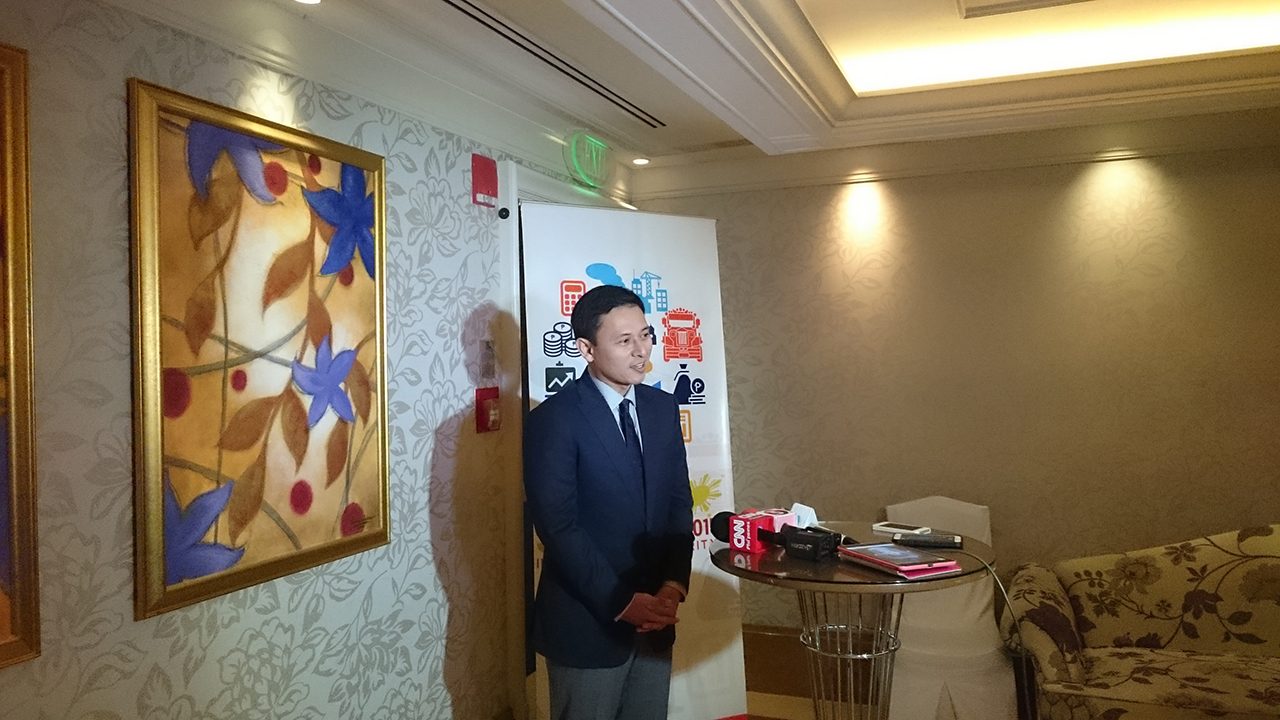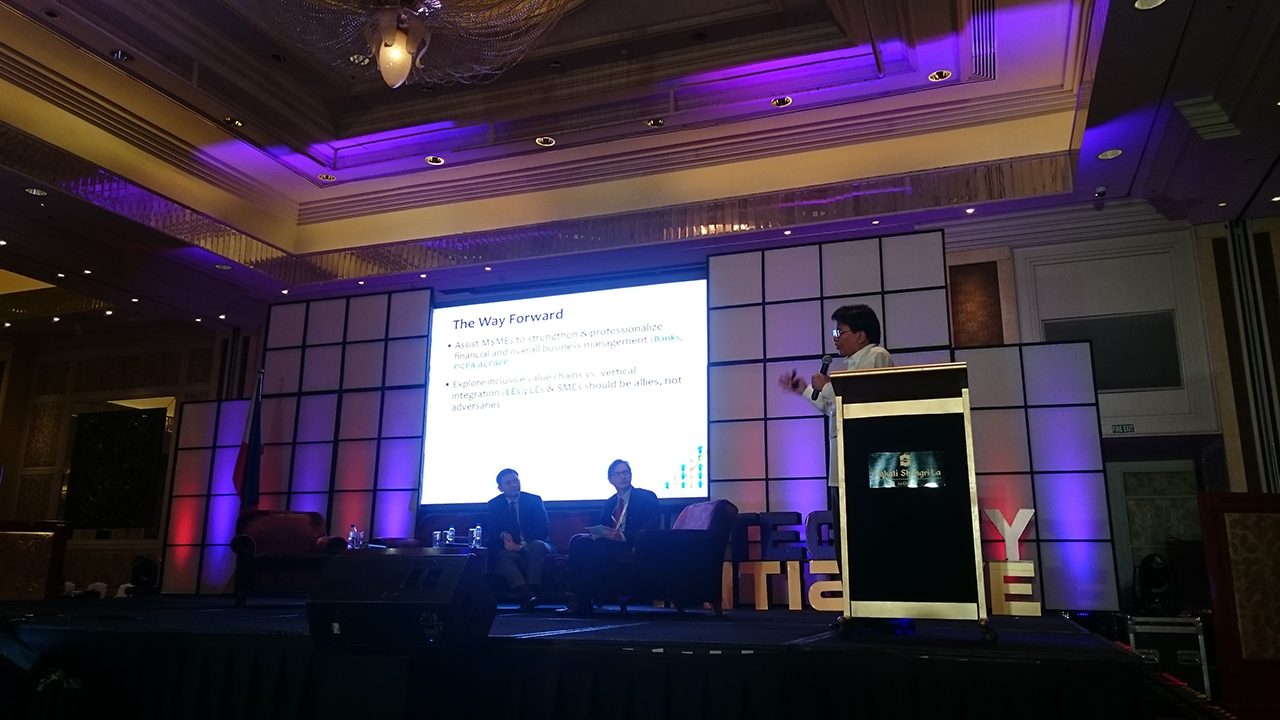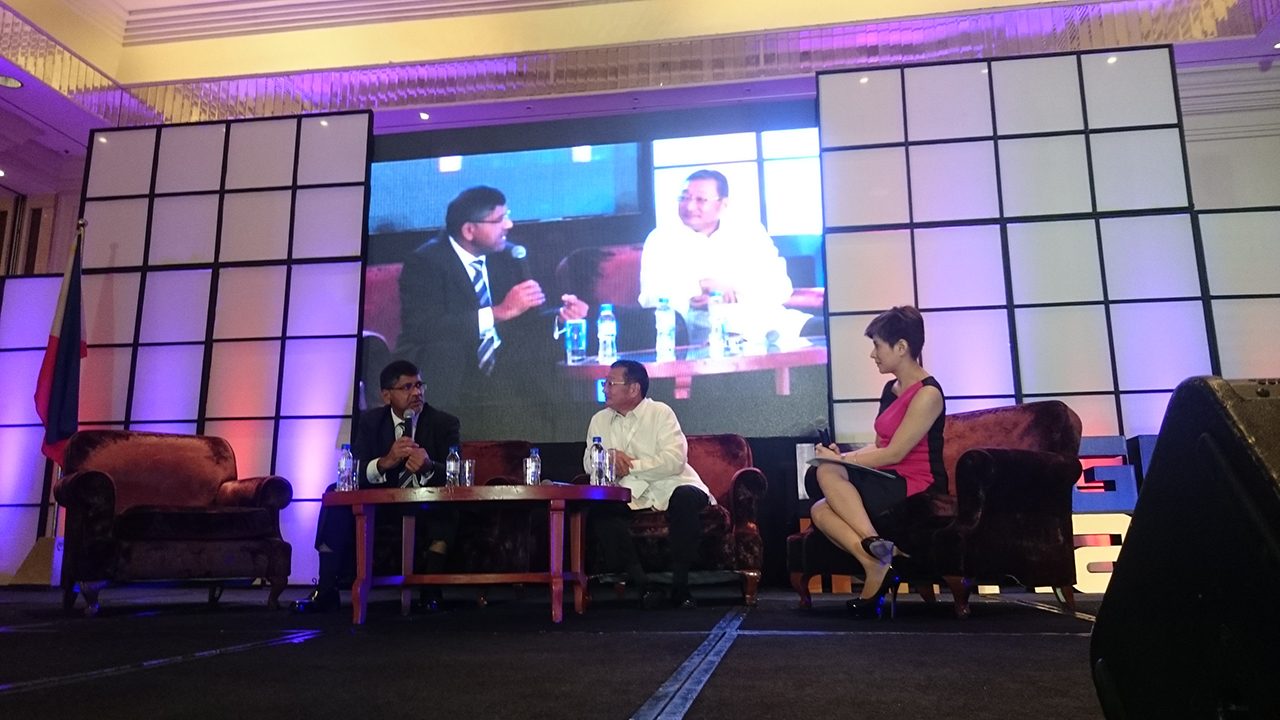SUMMARY
This is AI generated summarization, which may have errors. For context, always refer to the full article.

MANILA, Philippines – Matching outdated laws and regulations with the demands of the modern world would help sustain the country’s current economic momentum and curb corruption, Senator Juan Edgardo “Sonny” Angara said on Wednesday, December 9.
Speaking at the 2015 Integrity Summit, Angara suggested creating a commission, made up of a panel of experts from the private sector and the academe, to look at what laws can be repealed, revised or modernized to fit with the times.
A lot of presidential degrees and laws creating unnecessary bureaucracy and paper requirements exist, he noted. “We’re an over legalistic society, and I’m a lawyer myself saying that.”
The world is very different now and you can do a lot of things online, so one of the goals should be to cut red tape, he said.
After World War II, the country set up a code commission made up of experts to formulate civil and criminal laws. This would be the reverse, since the country has a lot of outdated laws now, he explained.
For next government?
The senator also said he would be willing to sponsor that law himself and is already planning it, but is not sure of the time frame.
“I’m not sure if the best time to do it is now since if we file it now, there won’t be any time to debate it anymore. So it might be better to do it for the next Congress, but in the meantime we can begin consultations and studies,” he said.
Other measures to push economic activity that the senator suggested were having a degree of whistleblower protection, passing a version of Freedom of Information Act, and having full implementation of the Anti-Red Tape Act.
“These are crucial as it could really address the complaints of businessmen as to why they don’t like doing business here,” Angara said.

Legislating for inclusive growth
The Integrity Summit also served as a venue to discuss two new laws, the Philippine Competition Act and the Cabotage Law, which are both aimed at addressing the problem of inclusive growth. (READ: Aquino signs PH Competition Act, amended Cabotage law)
The Competition Act is designed to allow market forces to work efficiently by eliminating cartels and other predatory practices. It is in that kind of environment small and medium enterprises can thrive, Senator Angara pointed out.
Allowing free competition is also behind the second law, the Cabotage Act.
The simple premise is that we injected the element of foreign competition into domestic shipping, Angara explained.
Citing complaints from various chambers of commerce, Angara said, “Of the 30 domestics firms, only 4 controlled most using small ships. This has resulted in a situation where its cheaper to send a container from Davao to Shanghai then from Davao to Manila.”
Though the senator lauded the administration for setting the country on the right path, he also lamented a few missed opportunities, including the failure to pass the income tax reform or indexation bill that he pushed for.
The Philippines only received about half of the 10 million visitors targeted in 2010, he said.
To emphasize his point that proper legislation can effect real change, Angara shared parts of a speech by Martin Luther King during the height of the civil rights movement in the United States in the 1960s.
“…While the law may not be able to change the hearts of men, the law does change the habits of men and when you begin to change the habits of men, pretty soon their habits will change and their hearts will change.”

Good governance baseline
Apart from Angara, the 2015 Integrity Summit brought together lawmakers, judges, economists, and heads of international organizations to discuss how to best combat corruption.
Most of the discussions on the day centered on putting the proper framework in place to help instill a culture of integrity in the country.
“Good governance is one of the major achievements of the Aquino administration and as we enter an election year next year the question is what are we looking for now,” said Angara. (READ: Aquino: ‘Corruption really is not tolerated’)
Angara mentioned the continuing administration’s transparency efforts is crucial but that additional capacity should now be added to build on it.
“Good governance is a necessary condition for success for our country, for business, but it is not a sufficient condition for economic success. It’s a baseline from where to begin,” he said.
Philippines in a good place
The Philippines is in a good place at the moment, noted World Bank Country Director for the Philippines Motoo Konishi.
The bottom 40% is growing faster than the top 5%. This has never happened before in this country,” Konishi said.
He added, the government has doubled government revenue and budget and has tripled the funds to help education and social protection all in 5 years, as evident in the expansion of Philhealth and the Conditional Cash Transfer (CCT) program.
Konishi attributed this to the government’s drive to eliminate corruption. But unless you can tackle corruption and improve governance you never eliminate extreme poverty, he said.
British Ambassador to the Philippines Asif Anwar Ahmad on the other hand explained that “Corruption is theft on a grand scale that brings harm to the most vulnerable in society.”
It does this by adding as much as 10% to the cost of doing business and 25% to the procurement for public projects, which is ultimately paid by consumers according to the World Economic Forum. (READ: PPPs growing in ASEAN, but corruption risks are high)
Creating a culture of integrity is then essential to continued economic improvement, the ambassador said.
“It is no surprise that UK and US rank no. 1 and no. 2 in foreign direct investment (FDI). We have made it part of our culture to eliminate corruption,” he added. – Rappler.com
Add a comment
How does this make you feel?
There are no comments yet. Add your comment to start the conversation.